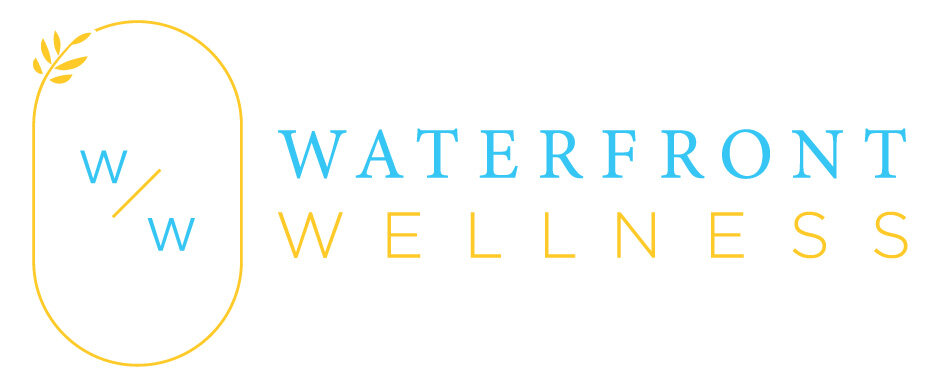Find out about 5 things that are making you fat – and they have nothing to do with your diet or exercise!
/1. Obesogens
What in the world is an obesogen?! An obesogen is a substance or chemical that interferes with our normal fat metabolism, thus contributing to weight gain in some people. This includes a wide variety of chemicals such as certain medications like SSRI antidepressants, plastics such as water bottles and coffee cup lids, receipts, processed foods, skin care products, packaged foods, and non-stick cookware. These are chemicals that we are exposed to on a daily basis multiple times. It is fascinating to look at the correlation between the raising obesity rates and the increased exposure of these obesogens over the past few decades. Scary, Larry!
Action Steps:
Get your own stainless steel or glass water bottle and avoid plastic.
Never microwave anything in plastic, even if it says it is microwave safe.
Remove the plastic lid off your coffee cup and sip it without a lid.
Only buy organic produce and meat.
Tell the cashier to just recycle the receipt for you unless you really need it.
Only use organic and natural makeup and skincare. We are a giant sponge!
2. Sleep
Yeah, yeah, you’ve heard it before. Lack of sleep is unhealthy. But did you know it actually makes you fat? I can’t tell you how many patients I see who come in exhausted and complaining of weight gain but refuse to go to bed earlier. They relish this quiet time for themselves in the evenings after the kids go to bed to relax. But it is at the expense of their total time spent sleeping. They stay up watching T.V. or perusing the internet which unfortunately emit blue lights which directly stimulate the pituitary gland to think it is day time and suppresses our melatonin (sleep hormone). So not only are we getting lack of sleep but then we have trouble falling and staying asleep. We need adequate sleep to produce optimal hormone levels and our circadian rhythms which are involved in regulating appetite and fat production.
Action steps:
Unplug already! Limit the use of anything with a screen- TV, cell phone, Ipad, and Kindles for at least 2 hours before bed.
Dim the lights, relax, meditate, or read before bed.
Go to bed and wake up at the same time every day, (even on weekends!) to really help regulate your natural circadian rhythm.
3. Gut bacteria
OK so this part gets a little gross…. We have learned through doing fecal transplants (yes, poop transplants!) between thin and obese mice that the bacteria in our gut are really the ones running the show. We have 100 trillion bacteria in out gut (they outnumber us 100:1) that effect everything from immune function, depression/behavior, to food cravings and weight gain. We can develop an unhealthy gut microbiome from being born C-section, not being breast fed, eating processed and low fiber foods, taking medications such as antibiotics, and not getting exposed to natural sources of good bacteria such as in cultured foods like Kefir and sauerkraut. Gut infections such as small intestinal bacterial overgrowth (SIBO) and Candida also help to create an imbalance in our gut bacteria.
Action Steps:
Eat a high fiber diet such as with increased produce and whole grains. Fiber leads to an increase in bacteroides which are the good bacteria that help us burn fat and stay thin.
Include fermented foods in your diet such as kefir, good quality plain yogurt, sauerkraut, kimchi or you can take a daily probiotic supplement.
Gardening and getting out in nature is another way we are exposed to healthy bacteria.
4. Stress
We are just modern cavemen running around with pants on so except instead of the occasional running from a predator that would stimulate our fight or flight response, we are dealing with chronic, daily stress for YEARS. Any stressor, even something good like a wedding or a new house, is registered as just plain STRESS. Our body sees any stress as a potentially life threatening situation so we covert out metabolic processes towards slowing down our metabolism (fat storage) and away from optimal hormone production and fertility (healthy metabolism). Stress increases our appetite, decreases control over impulses (poor food choices), and increases fat storage of whatever we do eat. High stress is Bad News Bears. Nuf said.
Action Steps:
Get serious about setting boundaries with the stressors in your life. If needed, work with a counselor of life coach to help you with this.
Meditation has been consistently shown in research to be a major stress reducer and boosts our ability to cope with stress.
5. Hormones
Yippee! My favorite topic! Hormones are the chemical messengers in our body that are involved with everything from mood, fertility, libido, to appetite and fat metabolism. Some of the main ones include estrogen/progesterone/testosterone/DHEA, HGH, and thyroid. The difference between a person with a TSH (the main thyroid hormone tested on blood work) on the low end of a normal range and a person on the high end of normal range is 12.13 pounds difference in body weight! When we are younger and have higher levels of our sex hormones, we tend to have no trouble pigging out on food and not gaining weight (think back to your college days). Once we hit mid-life and older, our hormone levels start to decline and with it we start to get the belly bulge.
Action Steps:
Get your hormone levels tested and work with a physician who understands the difference between “normal” and “optimal” ranges and specializes in hormone balancing.
Only use natural bio-identical hormones and not synthetic hormones and have your physician customized a formula unique for your needs.
Get your metabolism back to working optimally again and stop feeling like your weight loss efforts are like pushing a boulder up a hill!
